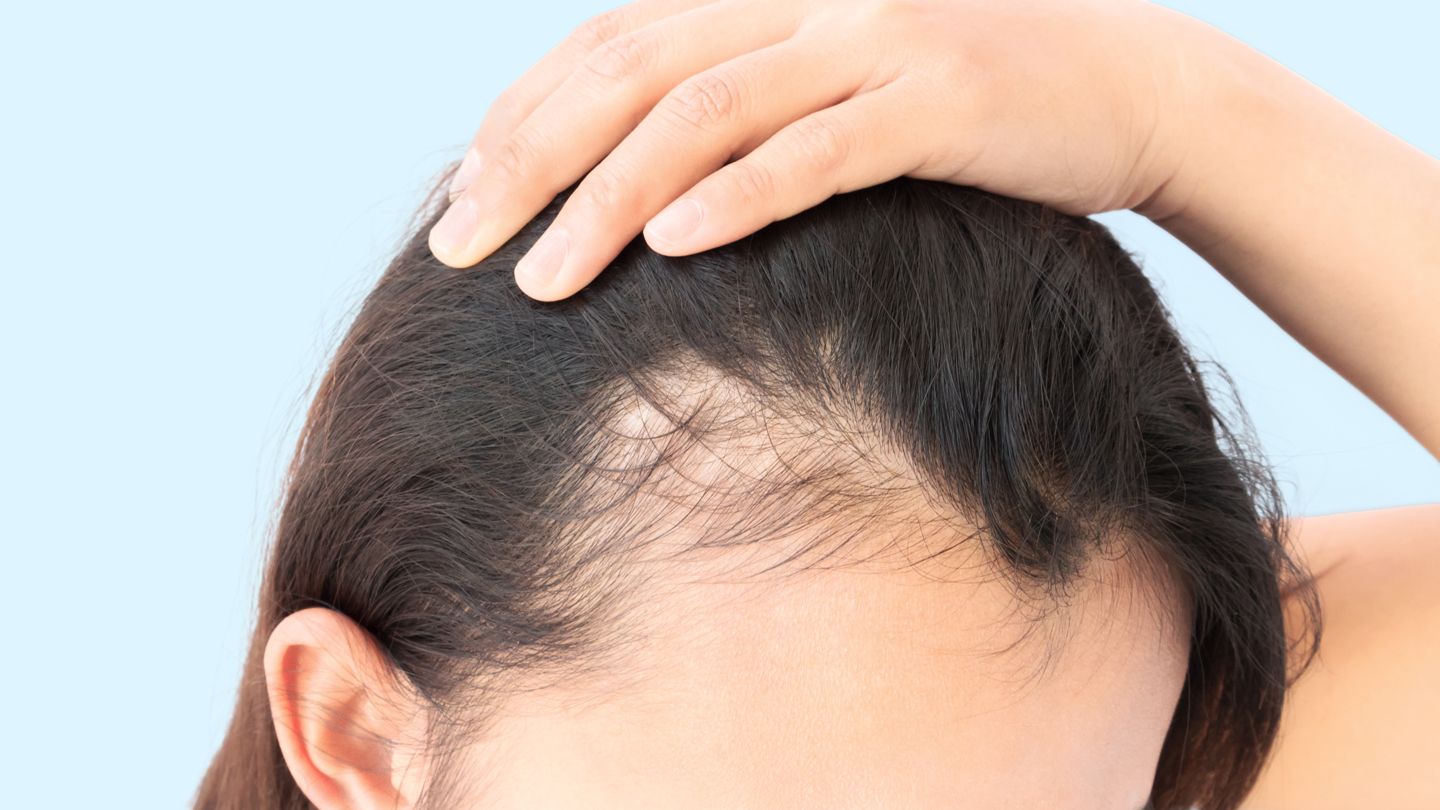If you have UC and you’re experiencing hair loss, tell your doctor, says Dr. Rao. “You’re not imagining it, and you’re not alone,” she says. “The good news is that hair loss is often temporary, and it might be your body’s way of asking for support. The best thing you can do is treat the root cause.” Some ways to manage UC-related hair loss include:
1. Talk to Your Gastroenterologist
First things first, if you’re worried about hair loss, talk to your gastroenterologist, says Gutierrez. Not only can your gastroenterologist help you manage UC symptoms and flares — they can also help pinpoint what may be triggering your hair loss. “A good evaluation will lead you toward the path of treatment faster than the ‘trial and error’ approach alone,” she says.
Your gastroenterologist can work with you to look at your holistic (whole body) health. They may even refer you to a dermatologist, who might request a biopsy of your scalp, so that they can further assess your hair loss by looking at a small sample of your hair follicles under a microscope, Gutierrez says.
2. See a Registered Dietitian if You Have Nutritional Deficiencies
Working with a registered dietitian who counsels people with IBD can help ensure you’re getting the nutrients needed to support hair growth, even during flares.
To identify specific areas of need, your gastroenterologist may first request blood tests to screen for nutritional deficiencies you may have, says Rao. “We can check for ferritin, vitamin D, thyroid levels, and B12/folate,” she says. “Lab work can tell us a lot, and we can treat underlying deficiencies if needed.” You’re better off understanding what your deficiencies are before adding supplements to your diet, Rao says.
3. Review Your Medications With Your Doctor
If you suspect your medication may be contributing to hair loss, talk to your gastroenterologist about it. Doctors know that certain medications used to treat UC can cause hair loss, Kane says. Your gastroenterologist may look into other treatments that suit your needs.
Don’t stop any medication without speaking to your doctor first. “It is important not to stop medicines out of fear that they are causing the hair loss without talking to your provider, because not uncommonly it was the disease and not the medicine that caused the chain of events,” Philpott says.
4. Do Your Best to Curb Stress
As mentioned, stress can worsen UC and contribute to hair loss. Doing what you can to lower your stress levels can make a big difference. “It’s important to remember stress can be a big player here, so I’ll often ask about stress levels and sleep quality,” Rao says.
5. Assess Your Diet and Lifestyle
6. Have a Gentle Hair Care Routine
- Be gentle when combing, drying, and styling your hair, because tugging on it too harshly can lead to hair loss.
- Limit the amount of heat you use to style your hair, including curling irons, hair straighteners, and blow-dryers, which can weaken your hair. Try to let your hair air-dry when possible and use these tools only on special occasions, such as job interviews or weddings.
- Avoid chemical treatments, such as dyeing, perming, or relaxing your hair.
- Use gentle shampoos, conditioners, and hair products.
- Avoid hairstyles that tug on your hair follicles, such as tight ponytails, buns, pigtails, braids, or cornrows.
7. See a Dermatologist for Hair Loss Treatment
As mentioned, your gastroenterologist can refer you to a dermatologist for further hair loss treatment, if needed. There are several medications and interventions available to help treat hair loss:
- Minoxidil, which is available as an over-the-counter solution or foam, increases new hair growth with repeated use over two to four months.
- Finasteride, which is a medication that’s taken by mouth, is used to treat certain types of hair loss by increasing hair growth on the scalp.
- Red light therapy, worn via a mask on the scalp, can help promote hair growth, research shows.
It’s worth noting, however, that only limited research exists on how these treatments can help people with UC-related hair loss in particular. Consult with your gastroenterologist or a dermatologist before trying them.
Read the full article here




